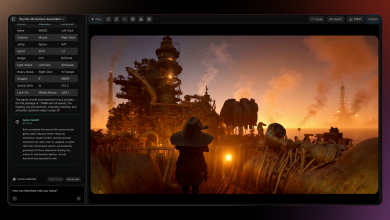
The CEO Outlook launched a decade ago with the aim of taking a snapshot of the views of leaders at some of the world’s largest, most influential companies. The pace of change in that time has been unprecedented. 18 months ago, you could have been forgiven for describing AI as ‘the new kid in town’. Today, generative AI and machine learning have shifted into the conscience of every business leader, every politician, and every citizen on the planet with 90% of senior executives we polled describing themselves as having an advanced understanding of AI.
In the last ten years, we’ve spoken to more than ten thousand CEOs, revealing the challenges and opportunities keeping them awake at night. Technological innovation ranked as the single most disruptive force over the past 10 years. Given that emerging and disruptive technologies have consistently ranked among the top three risks to growth in six of the past nine surveys, it is unsurprising that technology and the swift pace of global change have been persistent themes since the inaugural report.
This year’s findings highlight the dramatic shift in tech thinking toward AI. 64 percent of global CEOs indicated that they would invest in AI regardless of economic conditions. What’s revealing in our findings, is the acute understanding among CEOs that, while technology may advance at pace, a return on investments isn’t guaranteed in the short term. Indeed, 61 percent told us they anticipate that a return on investment specifically in AI could take at least three years, yet 72 percent still mark technology as their top investment priority.
Our findings on investment and confidence in AI should come as no surprise. It simply confirms that AI, while it may still feel ‘new’, is truly embedded in our world now and will only become a greater part of our everyday lives and business as we move forward, the genie is out of the bottle.
With new technology comes new risks and threats, and the business world is undoubtedly more resilient, and pragmatic today than when KPMG’s CEO Outlook launched a decade ago.
While we’re undoubtedly witnessing a race to embrace AI, leaders are acutely aware of the technical, societal, and financial risks it carries. Almost two-thirds (65 percent) of CEOs cited ethical challenges as some of the most difficult to address when implementing AI within their business, while a lack of regulation (53 percent) and access to technical skills and capabilities (47 percent) were other areas of concern.
The views of CEOs appear to echo across the C Suite. In KPMG’s recent Global Tech Report, we spoke to leaders including CIOs and CTOs. 78 percent told us AI will remain a ‘black box’ for many, with AI’s inner workings not fully understood by most users, posing transparency and trust issues. It’s reassuring to see that ethical thinking is dominating the minds of business leaders.
For many people, a sudden rise in new technology is as concerning as it is exciting and it’s essential that everyone is taken on this new journey. In the KPMG CEO Outlook, only 35 percent of leaders told us they were confident that their employees had the right skills to fully leverage the benefits of AI. It’s a sobering statistic.
The rush to embrace AI needs to be fully inclusive and focused on skillsets. While we’ve heard so much about the risk to jobs with AI, the reality is rather different. CEOs know that they need a people-first approach for AI to truly work to its full potential. Indeed, 81 percent said they believed the new technology would not fundamentally alter job numbers, with 91 percent telling us they actually plan to increase company headcount over the next three years – the first time this question has peaked above 90 percent since the pandemic. The evidence is clear – to optimize the transformative impact of AI, a fully collaborative, inclusive approach and relentless focus on upskilling and tech access and empowerment is fundamental.
When KPMG first launched CEO Outlook ten years ago, AI technologies simply weren’t something people were talking about. Fast forward to today, and it’s now front and center for business leaders, with workforces eager to embrace the seemingly endless possibilities technology creates. While I’m encouraged that the CEOs surveyed are taking AI so seriously and investing in innovation and technology, the rush to adopt mustn’t come at the cost of genuine, ethical, and transformative implementation. AI can add value to every aspect of business, all employees need to be part of that journey. I believe in the transformative power of AI but it can only reach its full potential when it is paired with human expertise and ingenuity.
AI presents complex regulatory, business, and technical challenges that as the scrutiny and regulation around AI increases, policies and practices to ensure its positive deployment will be required. With the right upskilling and a focus on unlocking the true potential of AI, there’s an opportunity for the business community to play a major role in shifting the world’s economies back toward a trajectory of long-term, sustainable growth.



